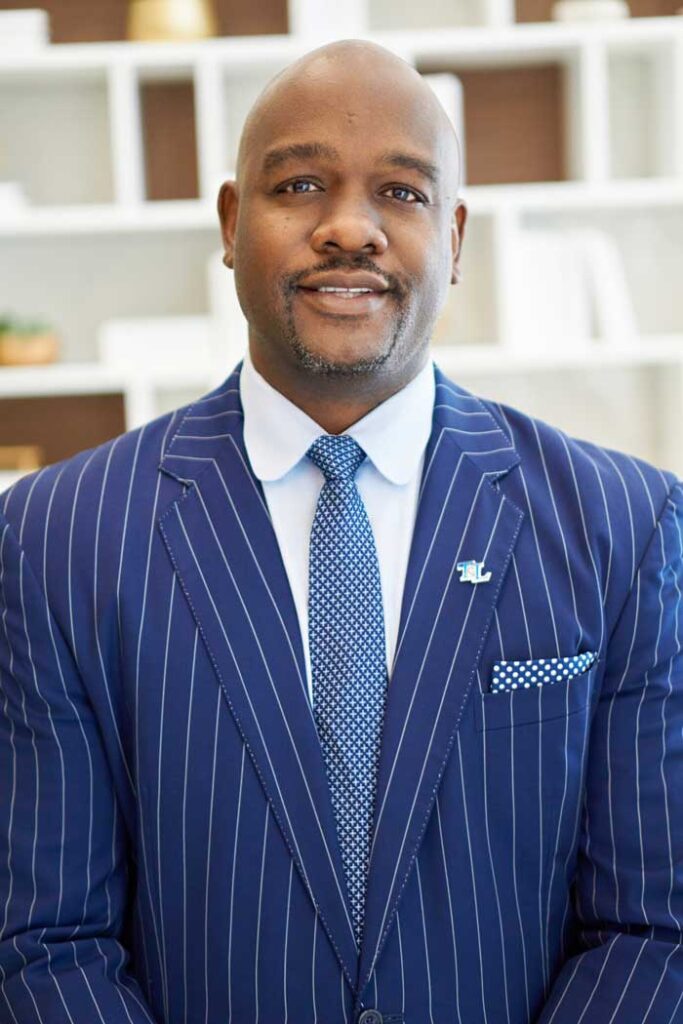Q&A with Marlen Whitley of Townsend & Lockett
By Ayo Shittu

In this Partner Profile, we talk with Marlen Whitley, M&A lawyer and Partner-in-Charge for Los Angeles and Houston at Townsend & Lockett.
Could you tell us a little about your career path so far?
I have moved around a bit. I started out at Clark Thomas, Austin’s oldest law firm at the time, and went to Chamberlain Hrdlicka for a few years. I became partner and then hiring partner at Thompson & Knight (now merged into Holland & Knight) and then partner at Reed Smith. I took a detour and went in-house with two companies: Weedmaps and USAA. And now, I’m back at a law firm, Townsend & Lockett, as the Partner-in-Charge for Los Angeles and Houston. In all these roles, I’ve always done corporate work: representing buyers and sellers in mergers and acquisitions and helping clients raise capital and comply with securities regulations.
How would you explain your job to a high schooler?
I do have to explain my job to my kids. I typically say that I help people negotiate contracts. Sometimes I work with someone who has run their business for a long time who wants to sell it off and retire or take the money to go start a new company. Or sometimes I work for the person who wants to buy the business. Outside of selling and buying companies, sometimes my client is raising money for an existing business or needs to enter an agreement with someone to do business with them. Let’s just say “Corporate and Securities Lawyer” doesn’t really mean anything to my kids.
What deal do you usually tell them about?
I helped a principal of a private equity firm buy a minority stake in the Houston Texans. It was quite something having the NFL doing a background check on your client.
What traits help lawyers in your practice area succeed?
I remember closing a deal with Winston & Strawn, and a partner was talking about attention to detail—how he could find an error in over 300 pages of closing documents. These seemingly minor details, like a comma, can change the entire deal. It is so important to have an eye for detail. I like to say boilerplate language requires extra attention because it can be where the bodies are buried.
Also being able to sell. As legal departments have grown substantially and consumers of legal services are more conscious about fees, the marketplace for legal services is much more competitive. The ability to sell is now as much a part of the business as contract drafting and negotiation.
What developments in your practice area should junior lawyers be educating themselves on?
From a transactional and SEC standpoint, I’d say cryptocurrency and, more generally, decentralized finance and how it will shape laws and impact how people enter and receive payments on contracts. I’d also say to follow the cannabis industry and, as legalization continues, to keep an eye on the current restrictions on how they can move money. There are several areas where the law is in its infancy such that interested students and junior lawyers can go beyond reading and applying laws to be thought leaders who help shape the law.
What aspect of the job have you found the most difficult?
The answer differs in each role. In a corporate legal department, the hierarchy of the organization—with several different stakeholders being impacted by anything you touch—can be a challenge. Legal departments are often seen as a cost center – they don’t directly add to the company’s profit – so to add value you must understand how your work impacts the business enterprise. When I was at a firm, the challenge was figuring out how to develop relationships with clients so that they come back to you when they have other legal needs and don’t think of the deal as a one-off. You want to position yourself as an extension of the client and their legal department.
Knowing what you know now, what is one thing you would tell yourself when you were a 1L?
I know it’s a cliché, but seriously, it is “Do what you love, and the money will follow.” You can typically find a way to make a living out of it. Law is already a tough profession, and if you don’t like what you’re doing or the people in it, it just makes the road tougher.
What advice would you give to a recent graduate?
What is true at this moment may not be true forever. You can always pivot. If you’re doing transactional work and you don’t enjoy it, consider litigation work. That pivot may be how you end up finding a fulfilling career that you love. I grew up with a dad who worked at the same job for 30+ years. Things are very different now. Be flexible and remember that your first job is not going to be your last job.
For those who don’t have a big law job lined up, there are several ways to get there if that’s what you want. At Reed Smith, I helped recruit a candidate who started off with the government in Arkansas and was then appointed to the Federal Energy Regulatory Commission (FERC) by President Obama. She developed such subject matter expertise at FERC that when she was ready to leave the agency, she could write her ticket anywhere. She’s now a partner at the firm. My point is that if big law is the goal, don’t worry if you have to start somewhere else for now.
Thank you for sharing your thoughts with us! I’m sure our law students and junior lawyers will really appreciate reading them.